Successful Life as a Mechanical Engineer servicing Elevators and Escalators
This article features a mechanical engineer working on the installation, maintenance and servicing of elevators and escalators. Kelvin Mwikya is a mechanical engineer and electrical expert and is currently working for StarCraft Technologies Ltd in Kenya.


Mechanical engineer with electrical experience – meet Kelvin Mwikya
Background and path to engineering
What were your interests as a child and have any of them led to engineering?
For sure I had a lot of interest in getting to know how industrial machines work. I remember one day I visited a soft drinks manufacturer, and I enjoyed how the packaging machines were working. Also, I remember always questioning my late uncle and asking him to explain to me how those machines were able to ” think like a human being”.
Have you always liked fixing things?
I like fixing things with an analytical approach. For example, if it’s in an engineering field, and if I am required to fix a faulty machine, at first glance I usually analyse the root cause of the problem. Then provide a relevant solution to the issue. If I am in any doubt, I always do some quick research or consult a colleague before fixing the problem.
Is there anyone in your family or at school who encouraged you to study engineering?
Yes, my late uncle encouraged me to study engineering as he saw that I had a great passion to study engineering. He saw this in me from when I was young, especially when I used to be near him while he was repairing machines. In fact, I used to be his helper during holidays, which was something that I enjoyed a great deal.
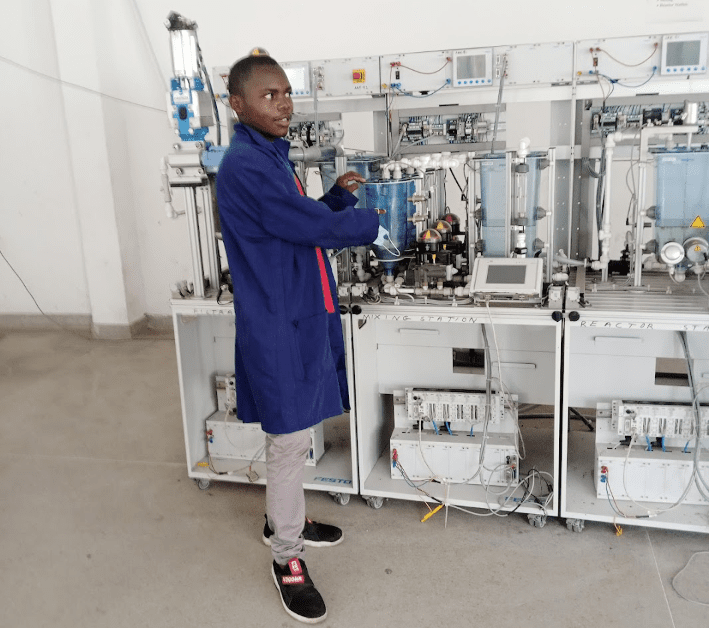

Mentors and inspirations
Who (and why) have been your mentors and inspirations:
as a child?
During my childhood my late uncle was my mentor. He was loved by many people because of his professional way of doing things, and how he used to bring faulty machines into working condition. This inspired me a lot. In addition, how he used to relate to his workmates while in the field gave me great insight as well.
now?
At the moment Engineer Shadrack is my mentor, as he inspires me a lot with his experience and the skillful way he confidently approaches engineering tasks.
Types of equipment and types of engineering
Can you detail the type of equipment you have used?
I have used various types of engineering equipment including the basic ones.
Distance measuring equipment: these include tape measures, and laser beam measuring equipment.
Assembling equipment: these include spanners both fixed and ring and box, Allen keys both torque and normal, filler gauges, bearing pullers normal and hydraulic, pressing machines, hammers and mallets.
Electronic testing equipment: these include earth impedance testing meters, voltmeters, ammeters, clamp meters/ multimeters, oscilloscopes, RJ45 and RJ11 testers.
Power equipment: these include rotary hand drills including hammer drills, lathe machines, welding machines, angle grinders, and circular saws.
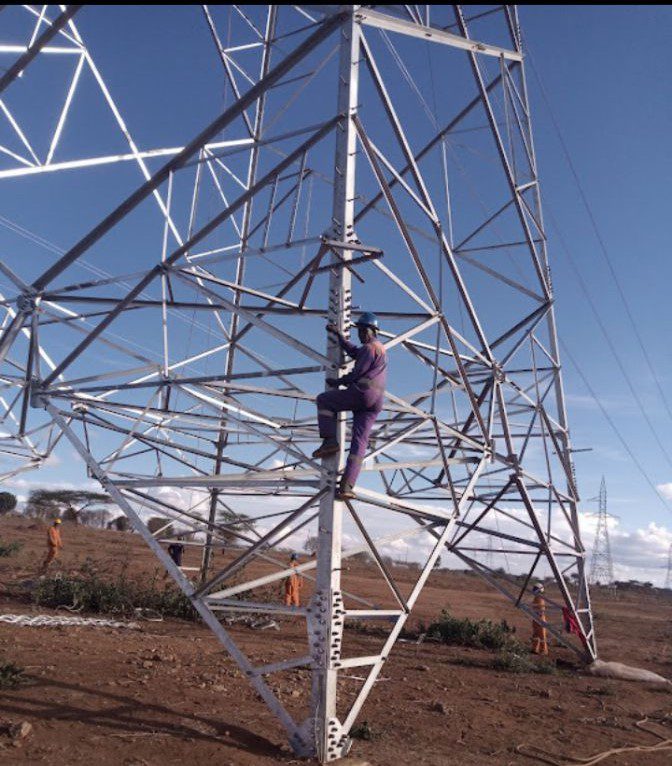

Could you detail the types of engineering and processes you have been involved in?
Electrical engineering
In this field I have worked on the wiring of elevators and laundry machines as well as high voltage transmission equipment. I have also involved myself in using schematic diagrams in the wiring of elevators and commercial laundry machines. In addition, I have wired different electrical panels including, reverse forward control panels, star Delta panels, wiring of variable frequency drive panels, direct online starter panels, and installation of different industrial sensors.
Mechanical engineering
In this field I have worked on different things including the overhauling of motors, assembling of elevators, and the assembling of commercial laundry machines.
Architectural/ civil engineering
I have been involved in interpreting floorplans during the installation of elevators and also the installation of other electrical equipment.
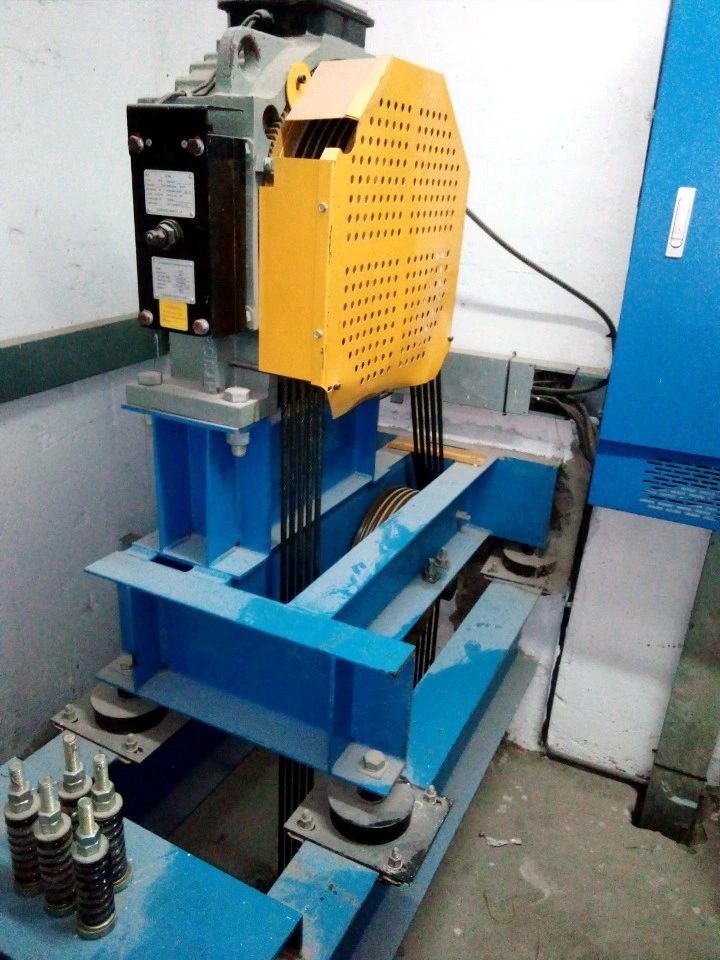

Elevators and escalators service engineering
How do you explain how an elevator works to someone who is not technical?
In a simple way, an elevator is a kind of a vehicle that provides transportation of passengers in a vertical direction. For example, in a huge commercial building with several floors an elevator can ease the movement between floors. In each floor there is a device installed outside the elevator, the purpose of the device is to call the elevator. Once you issue the call the elevator comes and in most cases the automatic door opens. Once inside, you give another command for the floor you intend to go to.
How do you explain how an escalator works to someone who is not technical?
An escalator is an electronic moving staircase inclined just like a normal staircase. The whole mechanism is powered and driven by a motor.
Typical week as an engineer servicing elevators and escalators
What’s your typical week like?
In most cases I work 8 to 9 hours a day, and normally spend 2 or 3 hours learning about engineering trends. One of those hours, I spend doing laboratory practical work to carry out experiments.
What are your tips for the best ways to share knowledge and experience with other engineers?
The best approach I use when sharing knowledge is by making a colleague share their thinking towards a certain problem and the approach they could use in handling the problem. If my colleague is unsure, I then start a discussion while sharing my knowledge by making sure they participate while I provide a solution to the task.
What do you do when something is not working, and there is no obvious reason?
First of all, I work strategically by noting down every step I have to take in order to have the task completed. In most cases I involve a colleague in the whole process so as to make sure that the decisions I make are right. After the discussion with my colleague, I implement every step and make sure I follow them as noted down.
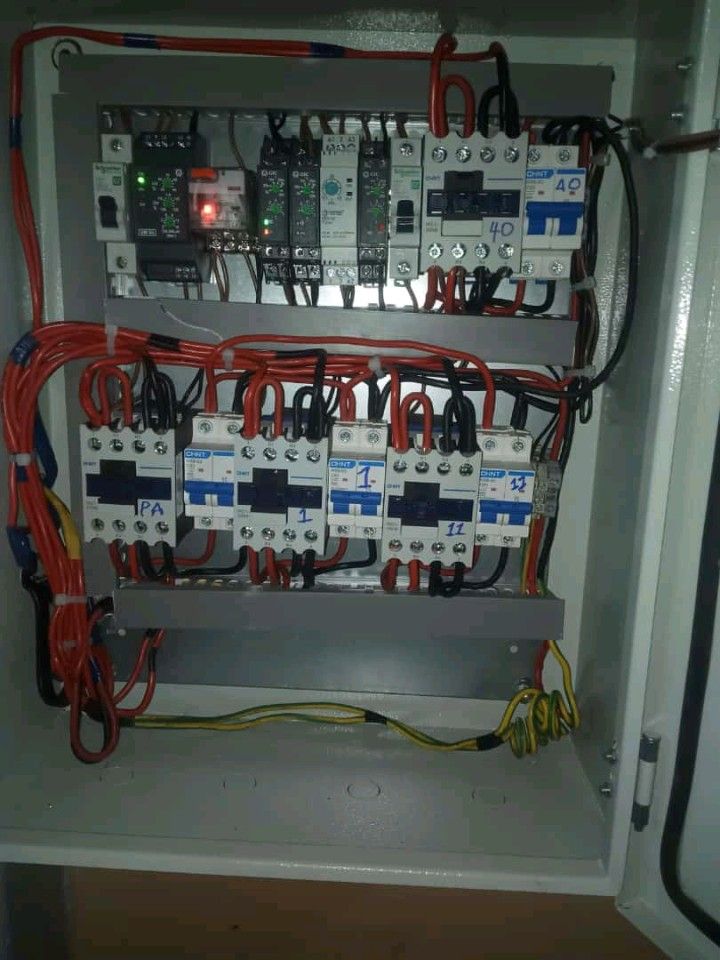

Preventative maintenance as an engineer servicing elevators and escalators
Why do you think preventative maintenance is so key?
Performing preventive maintenance is key because of four main reasons as follows.
Preventive maintenance prevents equipment downtime, and this ensures production is smooth and targets are achieved.
Safety is guaranteed when working with any equipment that undergoes regular preventive maintenance.
Preventive maintenance saves on cost, as it prolongs the life of the equipment and as well saves on the purchase of spare parts.
There is increased productivity, this is as a result of equipment working at its peak productivity.
How do you persuade customers to prioritise preventative maintenance?
First by creating a friendship with the customer on the very first visit, as this creates a good environment for my future communication. After that, I demonstrate to the customer the importance of performing preventive maintenance on equipment. I always give a customer room to ask questions while I answer them in a polite manner. On the other hand, I also have to demonstrate the dangers of not performing preventive maintenance on equipment.
How much of your month is spent on preventative maintenance?
At the moment I spend 15-20 days of my month on preventive maintenance.
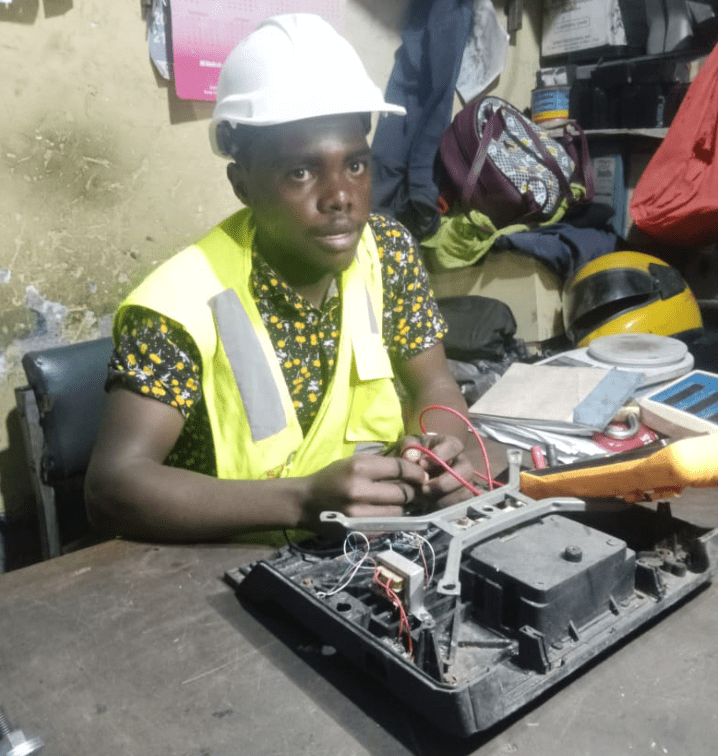

Why study mechanical engineering
What are the reasons you would suggest mechanical engineering to other young people? Why in your opinion is it a good career?
I would strongly encourage mechanical engineering to young people. Mechanical engineering is the best career, as it gives the best experience of interacting with different industrial machines. As well as having the best networking opportunities with famous engineers in the industry. By learning mechanical engineering, an engineer is equipped with skills to adapt quickly. This is necessary as technology is growing so fast.
If someone is at school now, what could they do to start to prepare for studying engineering?
Someone who is at school at the moment should first find out and be interested in what engineering entails. Then they should create and have passion to “want to know” how engineering equipment works. Lastly, they have to work hard to excel in their academic studies so as to achieve their ambitions.
What sort of personality traits are ideal for becoming an engineer?
Some of the key personality traits include these five.
Creativity, to be able to bring new ideas into the field of engineering.
Having diligence to ensure that one is able to handle all jobs including those which at first seem to be too difficult.
Being a reliable person, to make sure that the project’s deadlines are met on time.
Ability to work well in a team, as this shares knowledge as well as completing jobs on time.
Being able to work under pressure, especially when tasks to be completed require extra time. An engineer should be ready to work for extra hours to ensure projects are completed on time.
The future
What are you goals and ambitions for your future career?
My future goal is to be the best mechanical engineer by ensuring I have the best skills that will enable me to handle engineering assignments in the quickest way possible.
Would you consider working in another country? And why?
I would consider working in another country, as this would give me a chance to network with many other engineers and gain more skills.
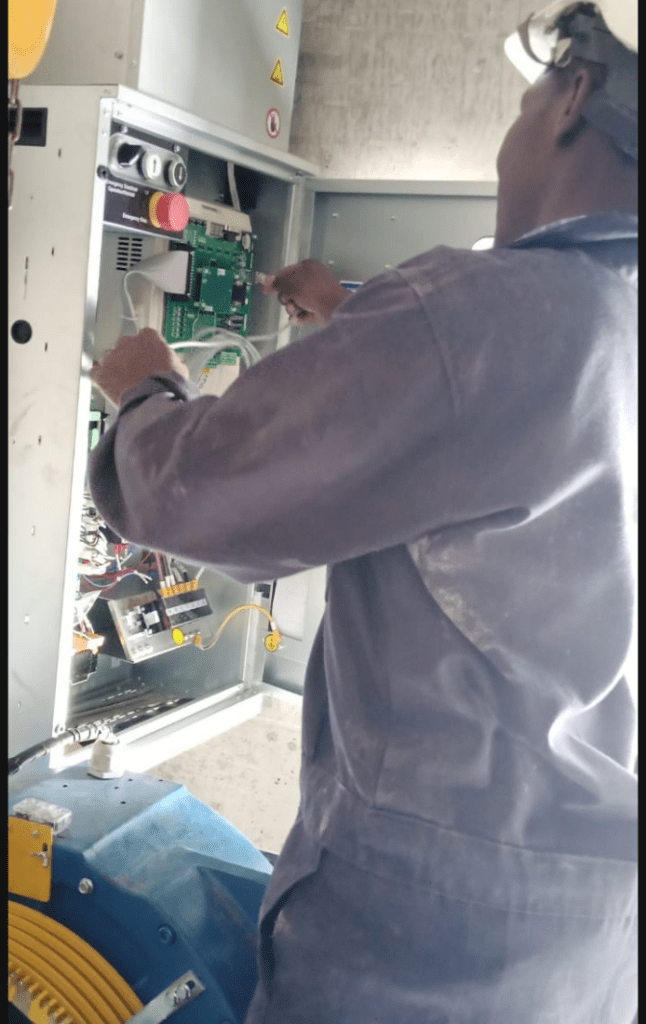

Further reading
A food and beverage production line equipment Field Service Engineer – meet Philip Asamoah Boamah


Responses